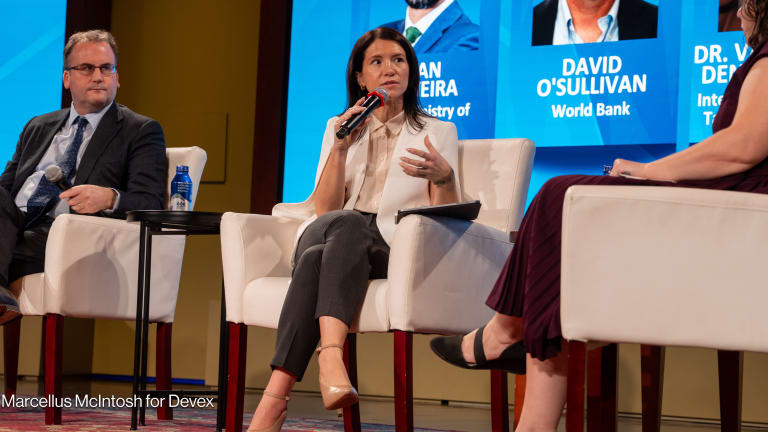
For most people, the Financing for Development conference in Addis Ababa, Ethiopia, last month concluded amid limited fanfare.
But for me — a development professional who has spent much of his career as a business owner and corporate chief financial officer — the #FFD3 conference carried its own banner headline that resonated loudly. The message was that developing countries wanted to take greater ownership of their own development by pulling together and committing to improving their own domestic resource mobilization capabilities. Although this sounds very wonky, it is pretty straightforward. DRM is simply the process in which countries raise and spend their own funds.
DRM is hardly a new concept, but one that has unfortunately been out of the spotlight for many years. I remember attending the aid effectiveness conference in Busan, South Korea, in 2011. Support for DRM was barely discussed there. There was only one meeting on the last day in the last time slot highlighting DRM. I was sadly one of only a handful of people who attended. Since then, the global community has coalesced around the importance of this transitional bridge from a nation’s receiving international aid assistance to its sustainably providing for its own — via transparent and effective tax systems. This stark shift in thinking was clearly apparent at #FFD3, where about 120 of the 151 speeches by the countries in attendance discussed DRM.
In anticipation of the #FFD3 conference, the U.S. Agency for International Development and the U.S. Department of Treasury along with development agencies from several countries, including the United Kingdom, Germany, the Netherlands and host country Ethiopia, worked together to press for a global commitment to DRM. As a result, we created the framework for the Addis Tax Initiative and launched it at #FFD3 with more than 30 countries and organizations, its membership growing in subsequent days.
Just what did ATI partners agree to? We agreed to several key principles including that: (1) donors would collectively double technical assistance for DRM; (2) all partners in the initiative would commit to a set of key principles on DRM; and (3) partners would pursue "policy coherence for development" to better ensure that the domestic policies and laws of one partner do not detrimentally affect the ability of another partner to mobilize the revenues due under its own policies and laws.
ATI evolved from the broad recognition that developing countries have large unmet needs that donor assistance alone will never be able to meet, and that domestic public resources — including taxes — play a central role in meeting those needs.
The excitement around ATI also reflects the compelling evidence that DRM assistance can yield returns that are many times the initial donor investment. In fact, sustained DRM investments, when coupled with political commitments, have often resulted in revenue gains of more than $20 for every $1 of initial investment. These increased revenues have been used to fund essential services, including vaccinating children, improving literacy rates and reducing hunger.
While ATI harnessed new energy and resources to the DRM agenda, it should not be mistaken as a vehicle to push countries to simply raise taxes or to decrease donor assistance. It is more focused on helping countries improve compliance and tax administration. It is a commitment to improve the fairness, transparency and efficiency of developing countries’ tax systems so that they can best help themselves.
As we move closer to the seminal sustainable development goals summit in September, where a new, universal set of development goals, targets and indicators will be adopted, we will need to continue the momentum behind ATI and improve DRM globally. As #FFD3 made evident, all sources of capital must be harnessed and mobilized to sustainably fund development. But, across all streams of financing, DRM is the single largest flow available to close the financing gap between money currently available and money needed to fund the ambitious SDGs.
We now have a strong consensus that development worth having must be long term and viable. Along with development assistance and private sector investment, DRM has emerged as a third pillar in a model to viably finance today’s development challenges.
Permanently better lives for those in many poor countries will ultimately be achieved by those countries managing their own development with their own funds.
Want to see more coverage of the SDGs? Check out Sustaining Development in partnership with Chevron, FXB, Global Health Fellows Program II, Philips, Pfizer, UNIDO, U.N. Volunteers and the U.S. Council for International Business. You’ll find more Devex news coverage of the SDGs like this article, plus opinion pieces, video interviews, and content provided by our partners.
Search for articles
Most Read
- 1
- 2
- 3
- 4
- 5








